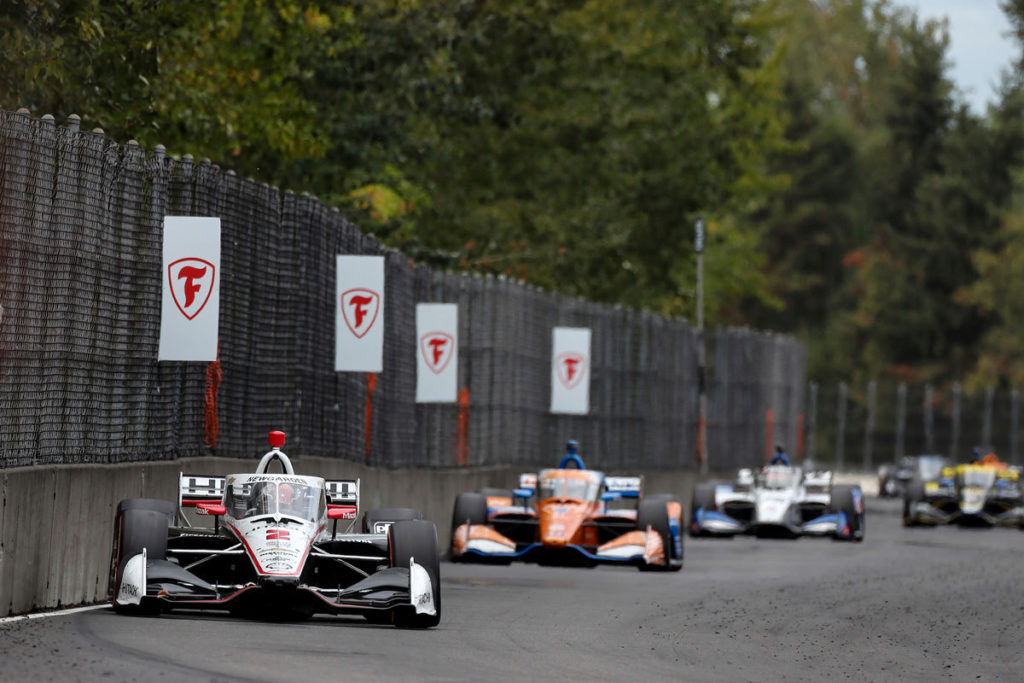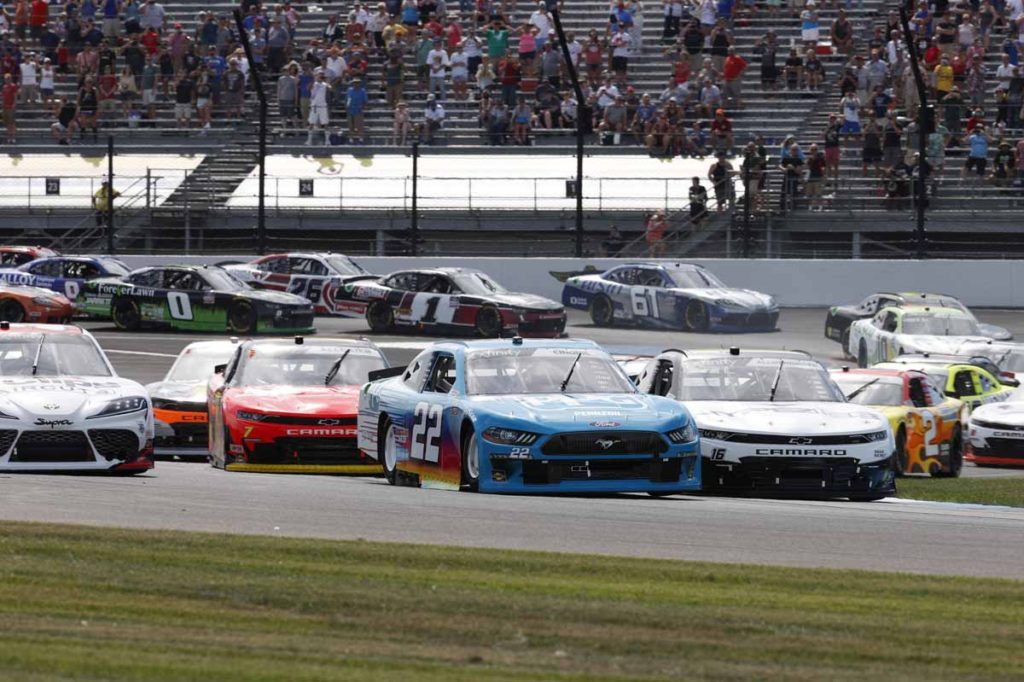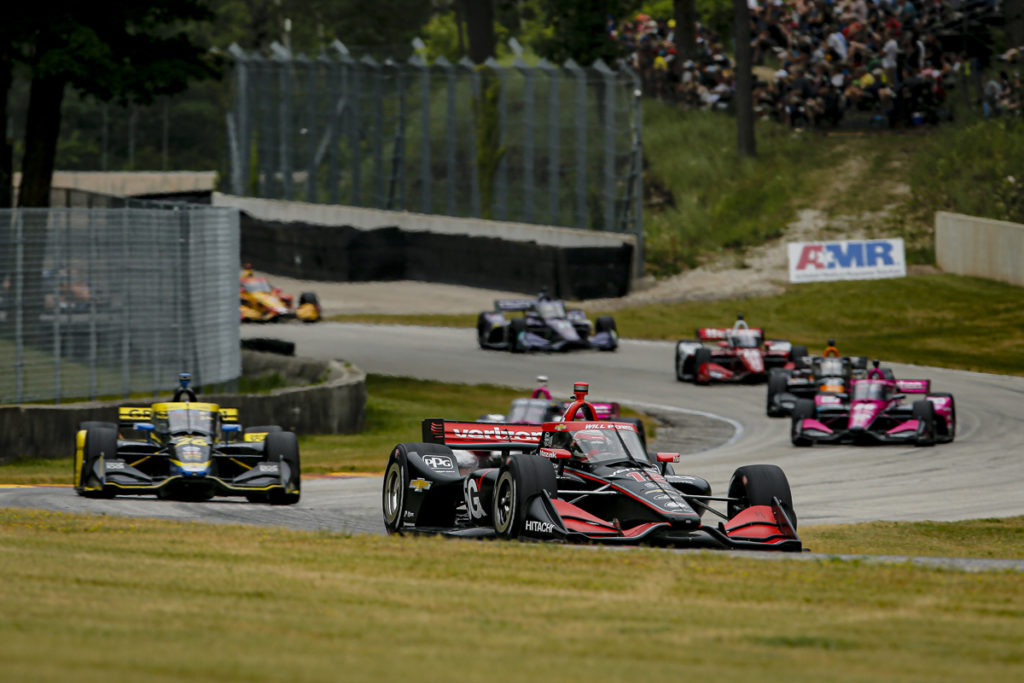When it comes to American motorsports, two series stand out above the rest: NASCAR and IndyCar. While both involve high-speed racing and talented drivers, there are significant differences between these two popular competitions. From the types of tracks they race on to the design of the cars themselves, NASCAR and IndyCar offer unique experiences for fans and competitors alike.
In this article, we’ll explore the four main differences between these two exciting series, giving you a better understanding of what sets them apart and what makes each one special in its own way.
SEE ALSO: NASCAR cars and Formula 1 cars, which are faster?

What are the differences between NASCAR and IndyCar?
The main difference between the two series is that IndyCar is an open-wheeled open-cockpit race. The cars are engineered for optimal aerodynamic performance and built for speed. Although the driver and car safety are the prime considerations in the series, drivers and cars are more susceptible to injury and damage in an IndyCar race.
IndyCars don’t have doors and have only one seat for the driver.
NASCAR cars are fortified stock cars and look very much like normal sedans. With crowded fields, a NASCAR car is expected to take a few knocks and survive the race. These cars race on rough road courses. The cars do have seats like ordinary cars.
The doors, except the driver’s door, are sealed to reduce the weight of the cars. The cars weigh much more than an IndyCar.
IndyCars weigh about 700 kg (1500 lbs) while a NASCAR car weighs in at 1500 kgs (33000 lbs). The driver in a NASCAR car sits on the left side of the car while the IndyCar driver sits in the centre of the car. This greatly affects the centre of gravity and the cornering speed of the car NASCAR cars have to use restrictor plates which restricts the speed they can attain on the track.
The chassis for the two cars are different. While Indy cars use the Dallara chassis made from carbon fibre and kevlar, NACAR cars are built on a sedan-like chassis made of steel. The engine of an IndyCar is a V6 engine. A NASCAR car uses a much heavier and more powerful V8 engine.
An IndyCar race usually involves 33 cars while a NASCAR race can have a field of 40 to 60 cars.
Bumps and contacts are allowed in a NASCAR event. These touches occur mostly on the last lap making races very volatile and exciting. Because of their heavy bodies, NASCAR cars take the bumps in their stride. No touches are allowed in an Indy car race at any time. Being lighter and faster, Indy cars are more prone to be airborne than NASCAR cars.
Cars in both the series race on very different kinds of tracks. NASCAR events are mostly held on ovals with some road races thrown in. IndyCars race primarily on road circuits and have fewer races on ovals.
The regulations governing a race in NASCAR and IndyCar also vary by the time the race comes to a conclusion. NASCAR races can last up to six hours due to delays caused by inclement weather. Some races do take that much time to complete. IndyCar races are decided after a stipulated number of laps if the weather intervenes. IndyCars sometimes race for as short as a two-hour duration.
SEE ALSO: How much does an Indy car cost? 12 essentials and shocking costs to join an IndyCar 500 race

Is an IndyCar faster than a NASCAR car?
The fact is that an IndyCar is faster than a NASCAR car. But IndyCar and NASCAR fans on both sides of the aisle will argue that their race cars are faster than the other. They will cite various statistics to argue that they are right. But the reason NASCAR cars are slower than IndyCars is not for the want of power from the engines of the cars.
Till 2018, NASCAR was using restrictor plates on the cars when racing at Daytona and Talladega courses. These plates restricted the airflow to the engine thus limiting the speed the cars could attain. In 2019, NASCAR started using tapered spacers in the engines to control the speed of the cars. Tapered spacers serve the same function as a restrictor plate but generate less turbulence in the wake of the car.
Although NASCAR cars have a more powerful engine, their top speed is limited to 320 kph (200mph) in a race. IndyCars can attain top speeds of between 380-395 kph(235-245mph).
Is it more dangerous to race in NASCAR than in Indy?
An Indy car is less protected than a NASCAR car. It is an open cockpit car and the driver has nothing to protect his head. Moreover, an IndyCar is built for speed and is much faster than a NASCAR car. As a result, IndyCar drivers have a much shorter time to react in an emergency than NASCAR drivers.
A greater speed also means the car crashes with greater force increasing the danger to the driver and spectators. NASCARs are heavier and sturdier. The chance of a NASCAR car disintegrating and debris flying into the crowd is much lesser than in an IndyCar.
NASCAR also allows a roll cage and NASCAR drivers have doors from which to get away from the vehicle in case of a crash.
NASCAR, however, has a larger number of participants in a race compared to IndyCar races. While IndyCar limits the number of racers per race to 33, NASCAR has at least 40 participants per race. This increases the chances of collision and crashes.
Although drivers are safer in a NASCAR car, participating in a race is more dangerous than in an IndyCar race.
NASCAR also allows bumps. Most of the bump drafting occurs during the last lap. Drivers believe in bump and run in NASCAR. “If you ain’t bumping, you ain’t racing! IndyCars aren’t allowed to so much as touch each other when racing. A collision could invite a penalty for one or both of the drivers.

Which series is more popular: NASCAR or IndyCar?
NASCAR has been racing since 1948 with a strong traditional base in the Southern States. Whole families watch NASCAR races on television. IndyCar was launched in 1996 and has a much younger fan base. Most of the IndyCar fans are in their mid-thirties or younger. Teenagers make up a good proportion of the IndyCar fan base.
NASCAR holds about 40 races over a season which lasts 9 months. IndyCar has a shorter season and organises 17 races. The number of races and the average attendance and tv audience of NASCAR allows it to easily beat IndyCar in popularity. Indy car is also 72 years younger than NASCAR giving the latter a head start.
Over the years, NASCAR has had an average of 62,000 spectators watching its races and another few million television audiences. The Daytona 500 saw 168,000 spectators. Another 10 million watched the race on television. Indy 500 drew 300,000 spectators while 2.5 million watched the race on television. IndyCar has an average spectator attendance of 40,000.
NASCAR with its core supporters is certainly the more popular of the two series.
Conclusion
Although NASCAR and IndyCar are popular sports and are widely followed throughout the world, there are many differences between the two series. That makes it difficult to compare the two races across parameters. The cars are built differently, run on different types of courses and follow different rules and regulations.
NASCAR vs IndyCar: Summary
What are the differences between NASCAR and IndyCar?
The main difference between the two series lies on the makeup of each car. IndyCar is an open-wheeled open-cockpit race. NASCAR cars are fortified stock cars and look very much like normal sedans.
Is an IndyCar faster than a NASCAR car?
Yes. Although NASCAR cars have a more powerful engine, their top speed is limited to 320 kph (200mph) in a race. IndyCars can attain top speeds of between 380-395 kph(235-245mph).
Is it more dangerous to race in NASCAR than in Indy?
Drivers are safer in a NASCAR car but participating in a race is more dangerous than in an IndyCar race.
Which series is more popular: NASCAR or IndyCar?
NASCAR with its core supporters is certainly the more popular of the two series.
